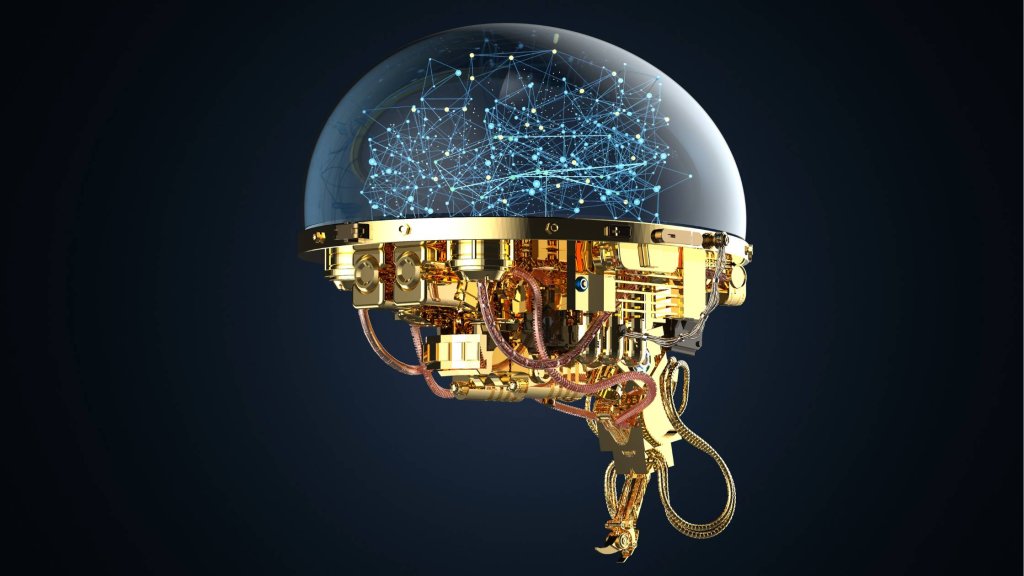VIEW BY TOPIC
- Finding Customers
- Business Systems
- Managing Employees
- Leadership
- Managing Money
Related Posts

Ready to Grow Your Business Fast?
Here’s How I Grew Five Businesses, and Eventually Sold One to a Fortune 500 Company.

Evolving Small Business Operations: The AI and ML Paradigm
In the ever-shifting landscape of modern commerce, a significant and transformative surge in the utilization of artificial intelligence (AI) and machine learning (ML) technologies is redefining the operational backbone of small businesses. This rise, stemming from an acute demand to refine business operations, establish deeper customer connections, and utilize predictive analytics, marks a watershed moment in the intersection of technology and entrepreneurial ventures. In this article, we go over the basics of AI and ML.
Understanding Its Role in Business
In essence, artificial intelligence (AI) serves as a technological blueprint, aiming to replicate human intelligence and handle tasks that conventionally require human involvement. The emergence of machine learning, a sophisticated branch of AI, facilitates the thorough examination of vast datasets, fostering informed decision-making based on valuable insights. This dynamic field continually evolves, challenging traditional boundaries and pushing the frontiers of innovation. The integration of AI and machine learning not only automates routine tasks but also augments human capabilities, revolutionizing industries such as healthcare, finance, and manufacturing. As these technologies advance, the potential for transformative impact on society becomes increasingly apparent, shaping a future where intelligent systems collaborate seamlessly with human expertise.

Transforming Small Businesses with AI and ML
These technologies are not just tools; they represent a beacon of hope for small businesses grappling with the challenges of limited resources. They can streamline operations by automating mundane tasks, thus reallocating time and resources toward more strategic objectives. For those embarking on this journey, resources such as Chisw’s website provide a compass, offering expertise and guidance for the effective implementation of these solutions.
In customer interactions, they shine as architects of personalized experiences. Chatbots, evolving beyond basic conversational roles, manage routine inquiries with unprecedented efficiency. Recommendation engines, armed with data and discernment, tailor product suggestions to individual preferences, enhancing customer satisfaction and fostering brand loyalty.
Data Analysis: The AI and ML Edge
They excel notably in the realm of data analysis, playing a crucial role in unraveling insights from diverse datasets. Small businesses can leverage these technologies to discern market trends, understand customer behaviors, and optimize operational efficiencies. Armed with these analytical tools, businesses can chart their growth trajectory with enhanced confidence and precision, making informed decisions that propel them towards success. The seamless integration into data-driven strategies empowers small enterprises to stay agile, adapt to dynamic market conditions, and capitalize on opportunities for sustained development.
Industry-Specific Applications
- Healthcare: In this sector, AI transcends administrative roles, streamlining tasks like appointment scheduling and billing processes. It delves deeper, offering personalized treatment recommendations based on a patient’s genetic profile and medical history.
- Finance: Here, AI emerges as a strategic analyst, dissecting financial data to unveil patterns and forecast trends, aiding in risk reduction and informed decision-making. It also personalizes customer offerings based on financial behaviors and preferences.
- Retail: In retail, AI takes on the role of a personal shopper, analyzing customer behaviors to curate tailored shopping experiences. AI-driven chatbots are transforming customer service, ensuring seamless and efficient interactions.
- Transportation: AI in transportation acts as a logistical maestro, optimizing routes and predicting maintenance needs to avert breakdowns and streamline operations.
The Tangible Advantages of AI Integration
- Operational Efficiency: AI’s ability to automate repetitive tasks translates into a newfound operational efficiency, reducing errors and freeing up human talent for more innovative tasks.
- Customer Engagement: Through automation and data analysis, businesses gain deeper insights into customer preferences, enabling personalized marketing and experiences.
- Business Intelligence: The analytical power of AI offers a panoramic view of customers, market trends, and competition, fostering a culture of data-driven decision-making.
- Predictive Analytics: Employing historical and real-time data, AI predicts future market movements, customer demands, and optimizes operations for enhanced accuracy.
AI in Small Business Software
Integrating AI into small business software multiplies its benefits:
- Informed Decisions: AI algorithms process diverse data sets to extract actionable insights, guiding businesses toward informed decisions.
- Data Visualization: AI transforms complex data into engaging visual formats, making it more accessible and actionable for decision-makers.
- Efficient Information Sharing: AI algorithms facilitate streamlined data sharing within organizations, ensuring timely and secure access to relevant information.
- Data Quality Enhancement: AI improves data quality through automated error detection and correction, ensuring the reliability of business insights.
Concluding Perspectives
This comprehensive exploration in small businesses offers more than a glimpse into these technologies; it presents an invitation to integrate them into the very fabric of business operations. It’s a call to action for small businesses to embrace these advancements, not just as tools, but as partners in their journey towards efficiency, personalization, and informed growth.
As we stand at the precipice of this technological renaissance, it’s imperative for small businesses to harness the potential of AI and ML, transforming not just their operational landscape but also setting a new standard in customer engagement and business intelligence. The future beckons, and it is one where AI and ML are not mere participants, but key drivers in the narrative of small business success.














